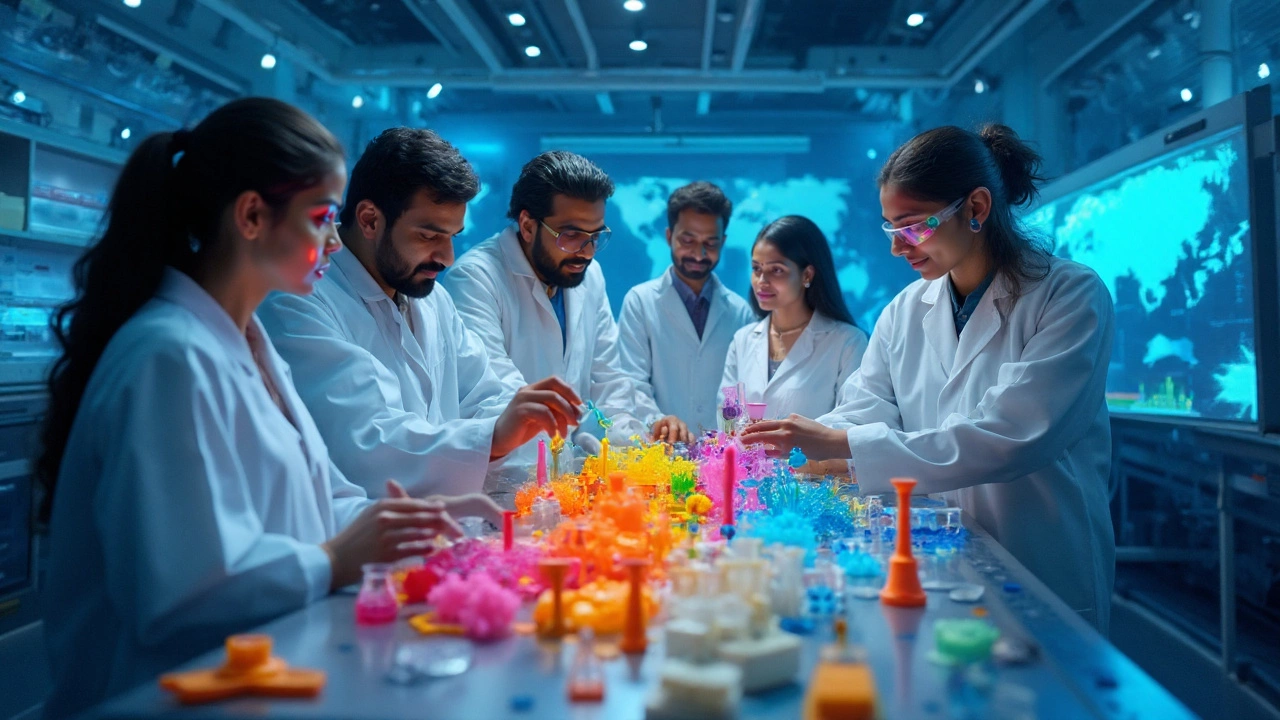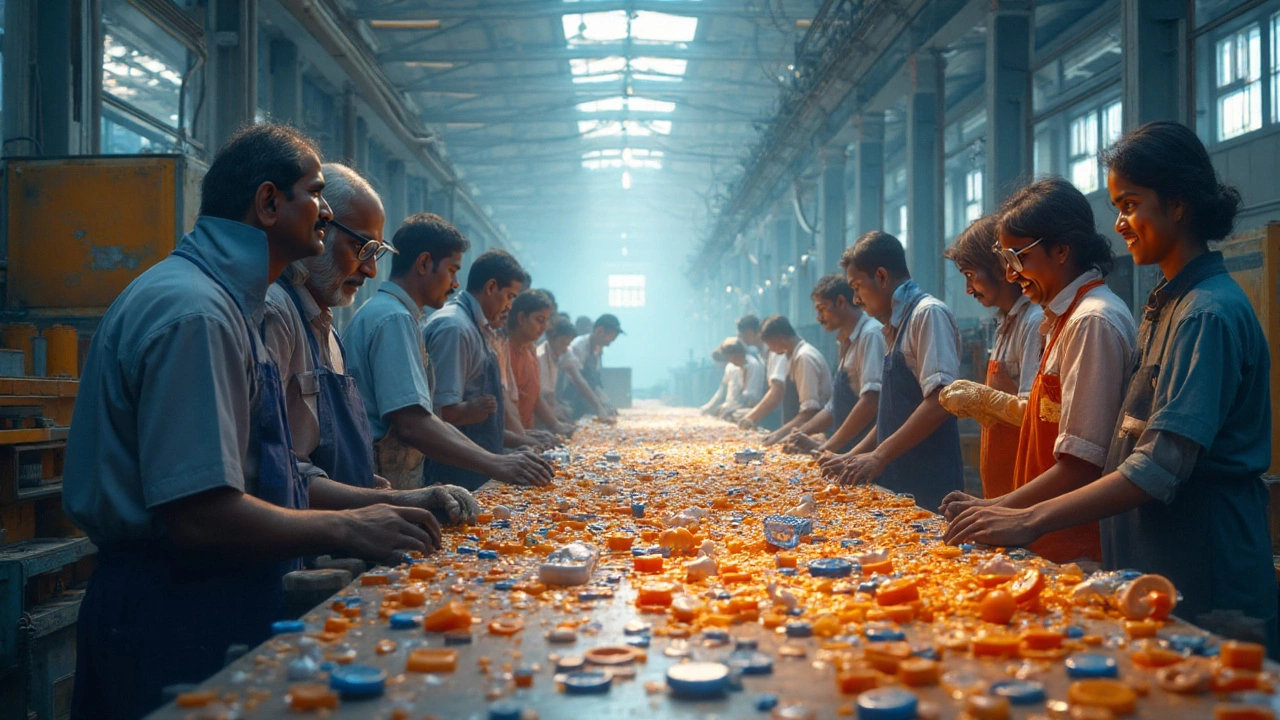Best Plastic Manufacturers 2025: Top Companies & How They Stand Out

Imagine grabbing your morning coffee, and as you sip, nearly everything you touch—the cup, your laptop, the phone, parts of your car seats—owes life to plastic. There was a time when plastic felt almost magical: light, flexible, cheap. Fast forward to now, and it’s a staple in every industry you can think of. But with so many manufacturers out there, picking the best one for your needs is tough. What makes one plastic company stand head and shoulders above the rest? Is it raw output, commitment to eco-friendly production, innovation, or reliability? The plastic industry isn’t just about pumping out cheap Tupperware or supermarket bags anymore, either. It’s now a high-tech world of sustainable materials, mind-blowing recycling projects, and plastic that’s smarter and stronger than ever before. If you’re on the hunt for the best in the game, buckle up—there’s more than meets the eye.
What Makes a Plastic Company the Best?
So, what really sets one plastic manufacturer apart from another? When someone tosses around the idea of ‘the best plastic company’, it’s easy to think about sheer volume. Is it about who makes the most plastic? While output is definitely a factor—after all, there'd be no industry giants without it—there's way more to this race. Reliability, quality, price, speed, safety records, and environmental chops all play a role. A great example is a company like Dow Inc. who’s been making plastic since your granddad’s day but now focuses heavily on eco-friendly chemistry and bio-based plastics. Big names like BASF SE, Sabic, and LyondellBasell are shaping plastics for industries you wouldn’t even expect—wind turbine blades, electric cars, next-gen plumbing pipes, you name it.
You’ve probably heard stats thrown around like the world producing 390 million tonnes of plastic a year. Who’s contributing most to that tidal wave? In 2025, the top five companies by sheer output and reach remain almost unchanged:
| Company | Headquarters | Main Products | 2024 Revenue (billion USD) | Specialty |
|---|---|---|---|---|
| Dow Inc. | USA | Polyethylene, Polyurethane | 55.4 | Industrial plastics, sustainability |
| LyondellBasell | Netherlands | Polypropylene, Polyethylene | 47.2 | Recycling innovation |
| BASF SE | Germany | ABS, Polyamide | 39.6 | Automotive, chemicals |
| Sabic | Saudi Arabia | Polycarbonates, Polyethylene | 39.1 | Construction, bioplastics |
| INEOS | UK | PVC, Styrene | 27.8 | Infrastructure, healthcare |
But sheer size doesn’t always equal the best. You’ve got to look at where their products show up. Dow’s plastics are at the guts of skyscrapers, but its nearly invisible connections in packaging, automotive, and renewable power make it a quiet backbone. LyondellBasell’s edge? It’s smashing recycling records, running the globe’s biggest advanced recycling plants. They’re even using AI-powered sorting to double recycled plastic quality—a genius move given the rising government regulations around single-use plastics. Then you get INEOS, based right in the UK, supporting everything from COVID test kit packaging to stadium roofing. It’s not just volume, but adaptability that counts.
What else matters? Customer support is huge. The best companies have technical teams who actually pick up the phone when you call, and they’ll help tweak a plastic blend for your special project instead of selling you a ‘take it or leave it’ resin. You don’t just want a high volume producer, you want a real partner who gets where your next innovation is heading.

Biggest Movers: Sustainability, Innovation, and Going Green
Here’s where things get interesting. Back in the day, no one batted an eye at burning through plastic—now, it’s a big deal. By 2025, governments everywhere are raising the stakes on green credentials. Top plastic companies know being ‘green’ is more than lip service; it’s about who puts their money on the table for research, carbon-neutral processes, or recycling tech. Take LyondellBasell: They’ve just opened the largest mechanical recycling plant in Europe and use renewable energy across a ton of their production lines. Sabic pumps serious cash into bioplastics, which means you’ll find their materials inside eco-conscious food packaging and next-gen electronics that break down if composted right. Their new TruCircle™ technology isn’t just hype—it’s proven to cut plastic waste in manufacturing by nearly 20%.
On the innovation front, BASF has a nifty smart polymer system that changes texture with temperature—a literal gamechanger for car seats and medical devices. And the race isn’t just for massive multinationals. You’ve got agile specialists like Covestro (previously a Bayer offshoot) making ultra-clear, tough plastics for wearable tech or designer trainers. These guys can pivot quickly to nail niche requests that titans like Dow might skip for volume’s sake. If you’re hunting for sustainability, companies offering traceable post-consumer recycled (PCR) plastic should catch your eye. They document where your plastic comes from and swear by third-party checks. That’s something a lot more clients demand now, especially across the EU and UK, where new rules hit hard on single-use plastics and microplastics in fast fashion.
Investors are watching closely too. In 2024, over $7 billion flowed into companies promising green innovation in plastics, and the best-ranked ones got there by showing real delivery, not cheap promises. If you want to futureproof your own product, picking a supplier with a public track record in sustainability gives you a bit of insurance—your customers (and investors) care now more than ever.
Here’s a tip: Always check how transparent your prospective supplier is with their eco stats. The more open they are about emissions, waste streams, and recycling rates (which should be at minimum 20% for leading firms), the higher the odds they’re not just paying lip service to the planet. Someone offering actual closed-loop, cradle-to-cradle solutions (where products are recycled endlessly, not just once) shows they’re lightyears ahead.

Picking the Right Company For Your Needs
You’re sitting at your kitchen table, comparing plastic suppliers, and they all look shiny and impressive. How do you pick the best for your project? Go beyond the website brochure talk. Start by getting specific about what you want: Are you after food packaging, medical supplies, construction materials, or hi-tech polymers for gadgets? Each sector demands a different mix of certifications, purity levels, delivery schedules, and after-sales support. For example, if you’re after food-grade plastics, the leader isn’t always the biggest company, but the one with unbeatable consistency in product hygiene and a supply chain that meets the strictest standards (like BRC, FDA, or EFSA).
Medical device makers often lean into partnerships with companies like Eastman Chemical, who ramped up their Tritan™ copolyester line—famed for being both super tough and BPA-free. For automotive, big hitters like BASF and Sabic get repeat business because they tailor resin blends for extreme strength or flame retardancy, offering detailed engineering support throughout. These companies also tend to lock in strategic partnerships with carmakers or appliance makers for long-term tech support.
Then there’s price. Everybody wants the best deal, but remember: the cheapest isn’t always the best. If a supplier cuts corners with poor quality control or substandard additives, you’ll end up with higher returns, warranty repairs, or—worst—public recalls. That’s a nightmare for any brand. Check for supplier reviews, third-party audits, and client referrals; most established firms will provide transparency reports or even let you tour their main production line virtually now.
Supply chain reliability shot up the priority list after the 2021-2023 global shortages. Look for companies that own their entire production process, right from resin creation to custom compounding and global logistics. Multinationals like INEOS and LyondellBasell shine here. They survived pandemic disruptions thanks to a broad base of plants in Europe, Asia, and the Americas. If you’re a UK reader, INEOS has a big edge with rapid local support and emergency deliveries—good for time-critical sectors like medical or food packing.
One more concrete tip: Ask about innovation grants or access to the R&D team—a feature many overlook. Some manufacturers, like Covestro and Dow, let partners join beta programs for new materials, cutting costs on prototyping and letting you leapfrog competitors. You might even get priority supply of the newest high-strength, recyclable, or flameproof plastics before they become industry standard.
Feeling overwhelmed with choices? Here’s a quick summary to keep it practical:
- For total reliability and global reach: Dow Inc. and LyondellBasell
- For green and recycled materials: LyondellBasell or Sabic
- For advanced automotive or electronics: BASF SE
- For UK local supply or healthcare: INEOS
- For agility and custom development: Covestro or Eastman
The world of plastic manufacturing in 2025 is less about churning out as much as possible and more about matching technology, sustainability, and global reach to your needs. The best company? It’s the one that fits your project like a glove, partners on innovation, and never leaves you in the lurch when things get tough.